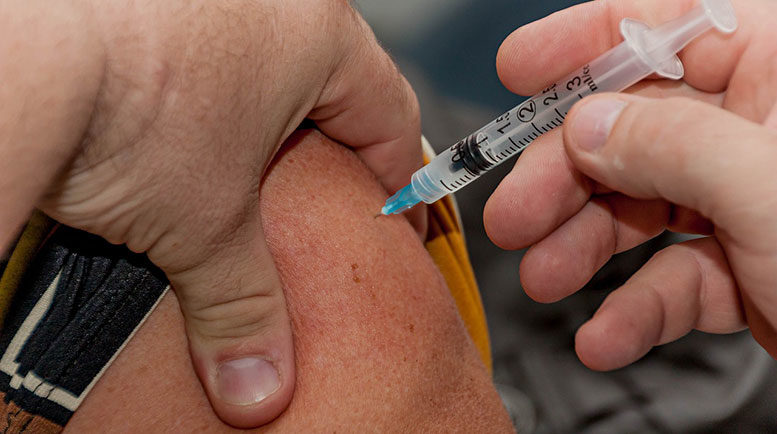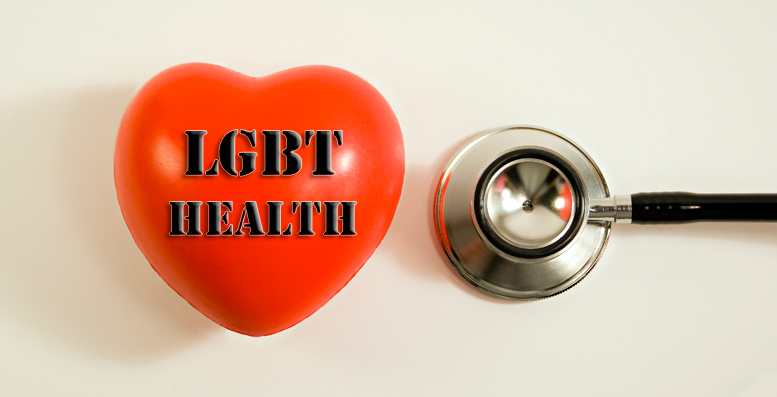BOSTON—A paper published in Journal of Health Care for the Poor and Underserved provides detailed guidance for creating culturally responsive health care environments for lesbian, gay, bisexual, transgender, queer, and all sexual and gender minority (LGBTQIA+) people. Authored by leading educators and clinical experts on LGBTQIA+ health care from The Fenway Institute, Fenway Health, Brigham and Women’s Hospital, and Massachusetts General Hospital, the paper builds on previously published guidance from The Fenway Institute and Fenway Health on how to develop and integrate transgender health programs within existing primary health care practices. The paper’s recommendations are based on research, expert consensus, the innovative clinical work of Fenway Health, and the authors’ experience in providing consultation and training to hundreds of health care organizations serving LGBTQ communities.
The report, titled “Organizational Strategies and Inclusive Language to Build Culturally Responsive Health Care Environments for Lesbian, Gay, Bisexual, Transgender, and Queer People,” provides tangible examples of organizational strategies and inclusive language that can be easily integrated into standard patient-facing processes, forms, and materials. The guidance covers methods for improving outreach and marketing materials, registration forms, medical history forms, and nondiscrimination statements.
“One of the key lessons we have learned from the field is that health care organizations want to become more inclusive, but do not always have the tools to do so,” said lead author Hilary Goldhammer, SM. “People working in all aspects of health care, from the front lines to the executive offices, appreciate specific and actionable examples of what they can say, write, do, and show to ensure that LGBTQIA+ patients feel welcome and safe.”
Organizations can begin by creating a task force comprised of people who are passionate about LGBTQIA+ health care and have the capacity to work on making their organizations more culturally responsive. The work of such task forces would include auditing their organizations’ outreach materials, hiring and nondiscrimination policies, registration and medical forms, and written protocols for explicit inclusivity of LGBTQIA+ identities, health needs, and relationships. An additional step would include gaining input and feedback from LGBTQIA+ and non-LGBTQIA+ patients and community leaders about the proposed changes to ensure that local language and cultural needs are being met.
Other issues addressed in the paper include:
- Developing language on registration and medical history forms that includes a full diversity of gender identities, sexual orientations, relationship types, and anatomies.
- Eliminating assumptions on forms and letters about the gender of patients, their parents, or their partners. For example, forms should say “parent/guardian” rather than “mother/father,” and templated correspondence can use the salutation “Dear Patient” in place of “Mr.” or Ms.”
- Collecting patient data about sexual orientation and gender identity in order to better deliver patient-centered care and to identify population-based health disparities.
- Educating patients and staff about the rationale for these changes, and presenting the changes within the context of providing equitable care for all.
- Pairing these efforts with staff training on effective communication and administrative commitment to equity.
“Many of these recommendations have the potential to improve the experience of all patients in a given practice,” Goldhammer added. “For example, collecting, recording, and consistently using the affirmed names of transgender or gender diverse patients is important because the affirmed name often does not match the name and gender marker on their insurance card. But this practice also benefits any patient who goes by a nickname or a middle name instead of a first name. Sometimes small changes like this can create big returns with regard to respecting patients’ lives and identities.”
“Organizational Strategies and Inclusive Language to Build Culturally Responsive Health Care Environments for Lesbian, Gay, Bisexual, Transgender, and Queer People” is available online at https://muse.jhu.edu/article/783090
About Fenway Health & The Fenway Institute
Since 1971, Fenway Health has been working to make life healthier for the people in our neighborhoods, the LGBTQIA+ community, people living with HIV/AIDS, and the broader population. The Fenway Institute at Fenway Health is an interdisciplinary center for research, training, education, and policy development focusing on national and international health issues.
[From a Press Release]








